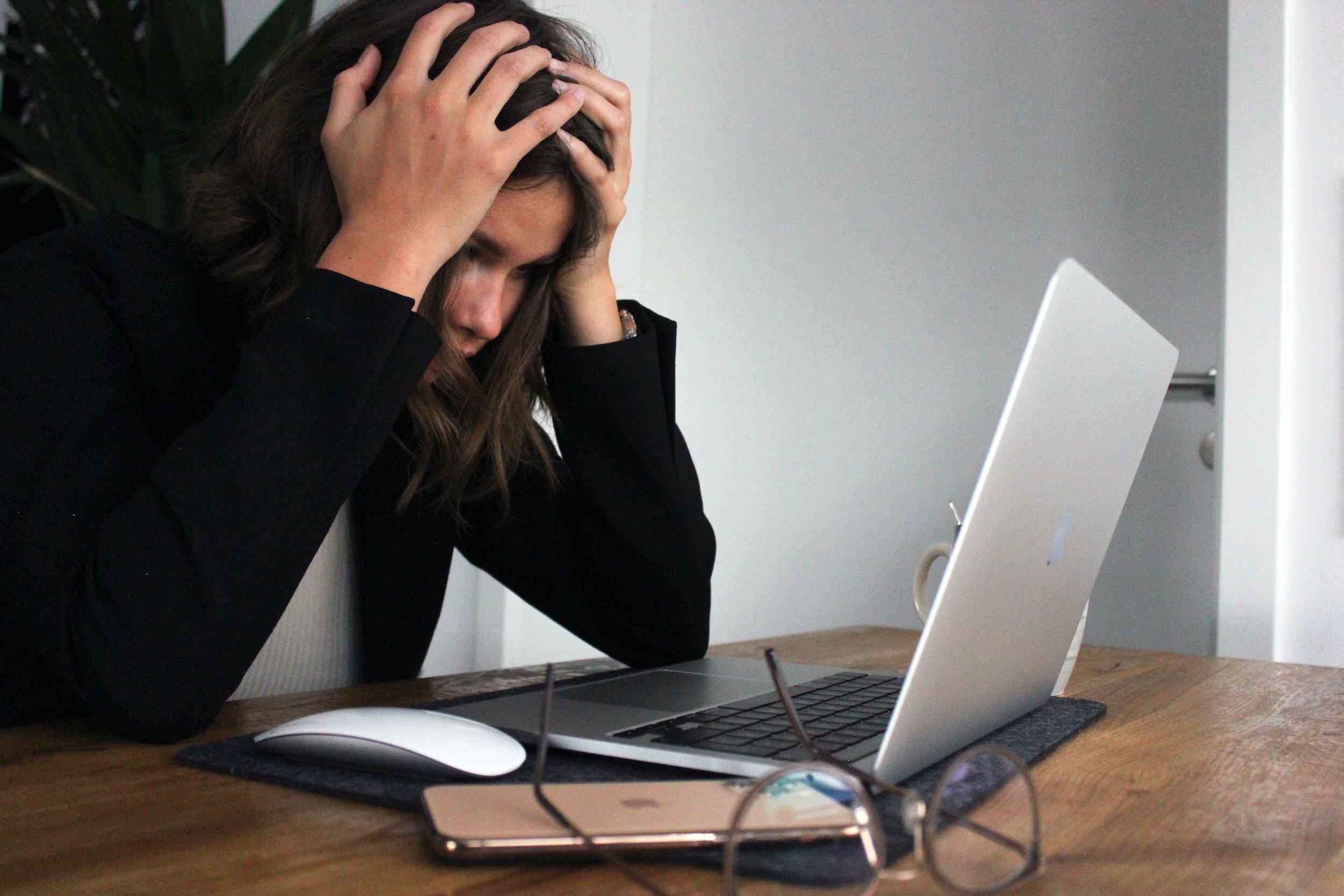
1:1 Sleep Coaching
The DREAM Sleep Program
A personalized coaching program for people with insomnia and sleep struggles.
A coaching program built on proven methods like CBT-I and behavior change science—designed to help you improve your sleep in a sustainable, personalized way. No guesswork, no generic tips. Just the right support to help you sleep more easily and wake up feeling more like yourself.
What You’ll Get Inside the DREAM Sleep Program:
8 weeks of personalized 1:1 coaching
A custom sleep plan based on your lifestyle
CBT-I-based tools + behavior change support
Ongoing support between sessions
A long-term plan you can rely on
If your nights are unpredictable and you rarely feel fully rested, you're not alone—and you don’t have to keep figuring it out on your own. This program gives you a clear path forward, with step-by-step support to help you rebuild your sleep with confidence.
What is included in the DREAM Sleep Coaching Program?
-
We’ll explore your sleep history, habits, and current patterns, and discuss your goals.
From there, we’ll build a personalized plan tailored to your lifestyle, grounded in the DREAM framework and CBC-I (Cognitive Behavioral Coaching for Insomnia) principles.
-
We’ll assess your bedroom setup and daily routines to make sure your environment supports—not sabotages—your sleep.
-
Each session includes coaching, personalized troubleshooting, and practical sleep education.
You’ll learn the why behind each strategy and have guidance every step of the way. -
If you need support, accountability, or help troubleshooting, you’ll have direct access to me between sessions. I check messages regularly during the week and will make sure you’re supported.
-
So that we can both keep track of your progress
-
By the end of the program, you’ll have your own personalized toolkit—what works for you, what doesn’t, and how to support your sleep long-term.
-
Easy-to-reference guides, plus short video support lessons to support your learning and keep you on track.
-
The last sessions will be extended to 60 minutes. We’ll use this time to reflect on your progress, review your personalized sleep toolkit, and create a long-term plan to maintain and build on your results.
Is this program for you?
-

This program is for you if:
You’re dealing with insomnia—trouble falling asleep, staying asleep, or waking too early and struggling to drift back off
You lie in bed with a racing mind that just won’t slow down
You wake up in the middle of the night and feel wide awake, frustrated, and helpless
You dread bedtime because you’re not sure if you’ll sleep or just toss and turn again
You feel wired at night and groggy in the morning, running on caffeine to push through the day
You've tried to push through or “quick fixes,” but nothing has really worked
You start noticing that your sleep issues are starting to take a toll on your energy, focus, mood, and motivation
You're ready to stop guessing and want to start following a structured plan that addresses the real problem—not just the symptoms
You want to feel in control of your nights again, with a plan tailored to you and support along the way.
-

This program is NOT for you if:
You’re looking for a quick fix or unwilling to make changes to your habits or routines
You’re not open to exploring the behavioral and psychological side of sleep
You’re relying solely on sleep medication and not ready to try a different approach
You’re experiencing sleep problems due to unmanaged medical or psychiatric conditions that require clinical care first
You’re not currently under medical supervision for a diagnosed sleep disorder (such as untreated sleep apnea, narcolepsy, or restless legs syndrome)
You expect results without active participation or ongoing reflection between sessions

Irina’s Coaching Approach
As your sleep coach, I look at the big picture—your biology, your habits, your thoughts, and the world you live in. Sleep doesn’t happen in isolation, so we explore what’s going on in your body, mind, and daily life. My approach supports your whole well-being, not just your sleep symptoms.
The coaching we do together is one-on-one and fully personalized. I’ll take time to understand your sleep struggles, your routines, your stress, and your goals. This isn’t about handing you a list of tips—it’s about working together to uncover what’s really getting in the way of your sleep and making small, practical changes that fit your life.
I use tools from Cognitive Behavioral Therapy for Insomnia (CBT-I), the most recommended approach for treating chronic insomnia. I apply these techniques through a coaching lens—educational, collaborative, and action-oriented—so you can understand your sleep, make real-life changes, and stay consistent. I also bring in elements from mindfulness and Acceptance and Commitment Therapy (ACT), which are shown to support better sleep. Like CBT-I, I use these in a practical, coaching-based way—not as therapy, but to help you build better habits, shift unhelpful patterns, and feel more at ease around sleep.
Everything I share is grounded in science, including how habits form, how people change, and how mindset shapes success. But tools alone aren’t enough—it’s how we use them that matters. My coaching style is client-centered and collaborative. You won’t be doing this alone—I’ll support you every step of the way, at your pace, as we create a plan that works for you.

The DREAM Framework
I created the DREAM framework to make sleep improvement easier to understand and follow. Many people I’ve worked with felt frustrated, stuck, or didn’t know where to begin. This framework gives us a simple way to look at all the things that affect your sleep.
The five pillars of the DREAM framework cover the key areas that play a role in how well you sleep—like your daily rhythm, habits, environment, and mindset.
The DREAM framework, combined with one-on-one coaching, helps me create a personalized plan based on your lifestyle, habits, and sleep struggles. Instead of giving you a list of general tips, we’ll focus on the areas that matter most to you. Everyone’s sleep challenges are different—some people struggle with racing thoughts, others with late-night habits, or a body clock that’s out of sync. As we work together, I’ll get to know what’s behind your sleep issues, answer your questions, and guide you step by step.
You don’t have to change everything at once. We’ll take it one step at a time, building healthy habits that fit your life and are easier to stick with. By the end of the program, you’ll have a solid understanding of the five DREAM pillars and the tools you need to support your sleep long-term.
The 5 pillars of D.R.E.A.M. framework

-

D - DRIVE
The DRIVE pillar focuses on creating the right balance between sleep and wake drive:
Improve the quality of your sleep by strengthening your sleep-drive body clock systems.
Increase energy levels during the day by strengthening your wake-drive body clock systems.
Sleep-wake homeostasis balances our need for sleep, called a “sleep drive” or “sleep pressure,” with our need for wakefulness.
The sleep pressure (or sleep drive) builds up in our bodies when we are awake. The pressure gets stronger the longer we stay awake and decreases during sleep, reaching a low after a full night of good-quality sleep.
-

R - Rhythm
The RYTHM pillar focuses on syncing your circadian rhythm with nature’s rhythm as it is crucial for optimizing your sleep.
Different systems of your body have their own circadian rhythms. But they are synchronized by the master clock in the brain.
The master clock is directly influenced by environmental cues, especially light and temperature.
When properly aligned, the circadian rhythm can promote consistent and restorative sleep.
When the circadian rhythm is out of sync, it can create significant sleeping problems, including insomnia.
-

E - Environment
The ENVIRONMENT pillar focuses on creating a sleep-promoting environment.
A relaxing environment is essential for a good night of sleep. It can mean the difference between a night of restful, restorative sleep or one filled with uncomfortable tossing and turning.
Studies have shown people sleep better when their bedroom is optimized for light and noise levels, temperature, and comfort.
Whether you notice it or not, your environment shapes your health, thoughts, feelings, and behaviors in countless ways.
-

A - Automatic
The AUTOMATIC pillar focuses on 2 significant aspects:
Identifying and breaking the loop of automatic thoughts and behaviors that are incompatible with sleep.
Creating new healthy habits that will make going to bed easy and automatic.
When it comes to sleep issues, there are a lot of alertness-promoting behaviors that keep us awake but are often hidden from our awareness. You might be familiar with some sleep-incompatible behavior of habits, but others might surprise you.
In the evening, when you have to prepare your body for sleep, the willpower levels are the lowest. Developing and automating good will enhance sleep quality and make sleep feel effortless.
-

M - Mindset
The MINDSET MANAGEMENT pillar focuses on managing and reducing stress's impact on sleep.
Stress is an important part of human biology, allowing people to react quickly and decisively in challenging or dangerous situations.
Stress and sleep have a reciprocal relationship. However, too much stress can profoundly impact sleep and overall health. High-stress levels can contribute to trouble sleeping, and poor quality or insufficient sleep can lead to maladaptive changes in the stress response.
We will focus on how to train your active mind to be quiet in bed, relax your body to quiet your mind, and how think like a good sleeper.
Why I created this?
When I talk to people, they often express difficulty with day-to-day activities, whether trivial or complex. Some have a hard time remembering things, feeling like they have brain fog. Many have low energy despite feeling like their life is fueled by caffeine. Others experience mood changes, getting irritated from trivial things.
What most have in common is trouble falling or staying asleep.
Maybe you can relate to some of these?
Feeling tired but wired when going to bed; becoming tense when trying to fall asleep as all the worries from the past day or about the next day flood your mind.
Anxiety around falling asleep; frequently checking the clock and making mental calculations about how many hours you have left to sleep until the alarm goes off.
A trip to the bathroom in the middle of the night quickly turning into additional hours of tossing and rolling awake in bed
Nowadays, the easiest and most common solution to sleep problems is taking sleeping pills.

But many people don’t realize is that most of the sleep struggles—especially insomnia—are often driven by what we do (behavior) and how we think (mindset) around sleep.
Insomnia isn’t just about not being able to sleep. It’s often caused by a mix of unhelpful sleep habits, stress, racing thoughts at night, and the anxiety that builds when sleep doesn’t come easily. Over time, your brain starts to link the bed with frustration, alertness, or worry instead of rest. And the harder you try to force sleep, the more it slips away.
Taking a sleeping pill may offer short-term relief, but it doesn’t fix the root of the problem. Real change comes from understanding what's keeping you awake and learning how to respond differently—both in your daily routine and in your mindset.
Many sleep programs offer quick fixes or generic advice. They might give you a few tips and leave you to figure the rest out on your own. But that’s not how lasting change works.
But that's not the approach I take. There's no overnight transformation when it comes to changing our sleep and other recovery behaviors sustainably. My DREAM Sleep Program is build on my signature DREAM framework. Using this framework I organized all the relevant information and systemized it in a way to give you tactical strategies to help implement PROGRESSIVE behavior change that takes you to your goal, step by step. In this program I also help you implement those changes, empower you to take action, troubleshoot issues as they arise, and help you to get unstuck.
This program is ideal if you’re struggling to:
Fall asleep at night
Stay asleep without waking often
Wake up feeling rested, not exhausted
If you're ready to do changes to get a better sleep, energy and health—without relying on medication—this program was made for you.
FAQ
-
Outside of weekly 30 min Zoom calls, we will use text message or voice/video message platform app if programming related. I usually respond quickly, but always within 24 hours during the week and 48h on weekends.
-
Any number of things depending on the person's needs, including evaluating the previous weeks goals, troubleshooting, going over what is in the program we designed at the beginning, covering resources/handouts, and just chatting up about life. This is a real relationship, and I take a whole person approach.
-
I allow one rescheduling with at least a 24 hour notice to another time within that same week. If I'm told of the absence with enough time in advance, I can add a week on to the end of the current 8 weeks. However, for your success, momentum, adjustments and implementation, it's really important to consistently maintain the recurring time we agree on at the start.
-
This program is designed to be 8 weeks long.
-
The program is 8 weeks long and it covers these sections:
Week 1 - Intake, Assessment and Goal Setting (60 min)
Week 2-7 - Weekly sync up for coaching and support (30 min)
Week 8 - Program Wrap-up and Plan for Future Maintenance (60 min)
-
No, a sleep tracker is not necessary. We can keep a Sleep Log on paper/online. However, I recommend having one, so we can better track your sleep and have a better way to measure progress.
I advise against tracking your sleep in case tracking sleep makes you anxious. These details we will decide on these in the Assessment call.
-
Your Sleep User Manual is a collection of entries that identifies what works for you that allows you to get better sleep, feel more relaxed, and have more energy.
The Sleep User Manual will be your own SLEEP TOOLKIT that you can use whenever you need, weeks, months, or even years after we finish working together. Though you might get better sleep now, life can happen and can through your balance away and end up counting sheep again. Going back on your Sleep User Manual will help remind you what you have done in the past that has worked for you or what hasn't worked.
Apply to work with me:
Please take a minute to fill out this form to work with me for Sleep Coaching. This form must be completed before deciding whether or not we can collaborate. It will give me the information I need to determine if we are compatible and if I can help you. Upon submission, I will review your application and contact you within 72 hours if we are a good fit and with any next steps. Submission doesn't guarantee a coaching spot.
Book a discovery call:
If you are unsure if this program is for you or if we are a good fit, just book a 30 min discovery call where we will learn more about each other. During this call, I'll learn more about you and you about me. We will talk about your struggles and goals and see how I can help you.

Join Sleep And Beyond Newsletter!
Sleep And Beyond email newsletter topics range from solving common sleep issues like insomnia to optimizing your sleep for peak performance. We'll dive into the science behind sleep, explore chronobiology, and discuss how your mindset and daily habits impact your rest. You'll also get a dose of personal growth tips and stories from my own experiences, all aimed at helping you achieve a balanced and fulfilling life. So, if you're ready to take your sleep and well-being to the next level, you're in the right place!






